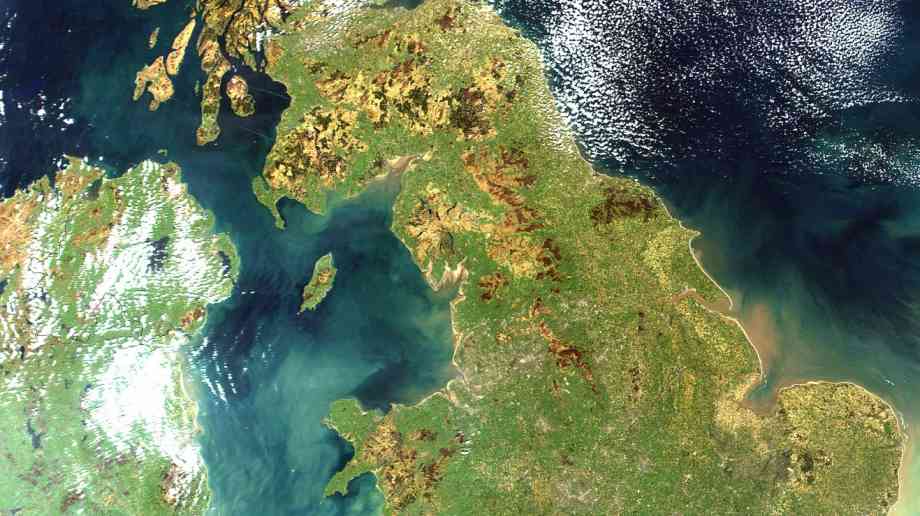Sue Robb of 4Children talks to Julie Laughton and Alison Britton from the Department for Education about the role of childminders in delivering the 30 hours free entitlement.
UK can cut emissions to ‘nearly zero' by 2050

A new report claims that the UK can end its contribution to global warming within 30 years by setting an ambitious new target to reduce its greenhouse gas emissions to zero by 2050.
The Committee on Climate Change (CCC) says that current policies will have to ramp up significantly for a ‘net-zero’ emissions target to be credible, given that most sectors of the economy will need to cut their emissions to zero by 2050. However, the committee says that the 2050 nearly zero target can be done at no added cost from previous estimates.
The CCC says that achieving a ‘net-zero’ target by the middle of the century is in line with the UK’s commitment under the Paris Agreement; the pact which the UK and the rest of the world signed in 2015 to curb dramatically the polluting gases that cause climate change. The recommended targets, laid out in the report, are achievable with known technologies, alongside improvements in people’s lives, and should be put into law as soon as possible, the committee says.
The Committee’s report says that the foundations are in place throughout the UK. These include: a supply of low-carbon electricity (which will need to quadruple by 2050), efficient buildings and low-carbon heating, electric vehicles (which should be the only option from 2035 or earlier), developing carbon capture and storage technology and low-carbon hydrogen, stopping biodegradable waste going to landfill, phasing-out potent fluorinated gases, increasing tree planting, and measures to reduce emissions on farms.
However, these policies must be urgently strengthened and must deliver tangible emissions reductions – current policy is not enough even for existing targets. Additionally, the UK could receive an industrial boost as it leads the way in low-carbon products and services including electric vehicles, finance and engineering, carbon capture and storage and hydrogen technologies with potential benefits for exports, productivity and jobs.
Lord Deben, chairman of the Committee on Climate Change, said: “We can all see that the climate is changing and it needs a serious response. The great news is that it is not only possible for the UK to play its full part – we explain how in our new report – but it can be done within the cost envelope that Parliament has already accepted. The government should accept the recommendations and set about making the changes needed to deliver them without delay.”
Greg Clark, Secretary of State for Business, Energy and Industrial Strategy, said: "Few subjects unite people across generations and borders like climate change and I share the passion of those wanting to halt its catastrophic effects. One of our proudest achievements as a country is our position as a world-leader in tackling this global challenge, being the first country to raise the issue on the international stage, introduce long-term legally-binding climate reduction targets and cutting emissions further than all other G20 countries. Today’s report recognises the work we’ve done to lay the foundations to build a net zero economy, from generating record levels of low carbon electricity to our ambitious plans to transition to electric vehicles.
"To continue the UK’s global leadership we asked the CCC to advise the government on how and when we could achieve net zero. This report now sets us on a path to become the first major economy to legislate to end our contribution to global warming entirely."
Company Focus
Just Lanyards is a subsidiary name of Gifts 2 Impress Limited, who have been trading for over 25 years, we therefore pride ourselves in having endless experience covering all aspects of the promotional merchandise industry.
Event Diary
UKREiiF has quickly become a must-attend in the industry calendar for Government departments and local authorities.
The multi-award-winning UK Construction Week (UKCW), is the UK’s biggest trade event for the built environment that connects the whole supply chain to be the catalyst for growth and positive change in the industry.
Supplier Profiles
Geo Energy
At GeoEnergy Design, we're on a mission to disrupt the traditional way heating and cooling ha
Latest Features
Professor Harith Alani, director of the Knowledge Management Institute at the Open University explains how AI can be used for good and bad.
Alex Lawrence, head of health & social care, techUK sets out techUK’s Five Point Plan for CareTech.

















